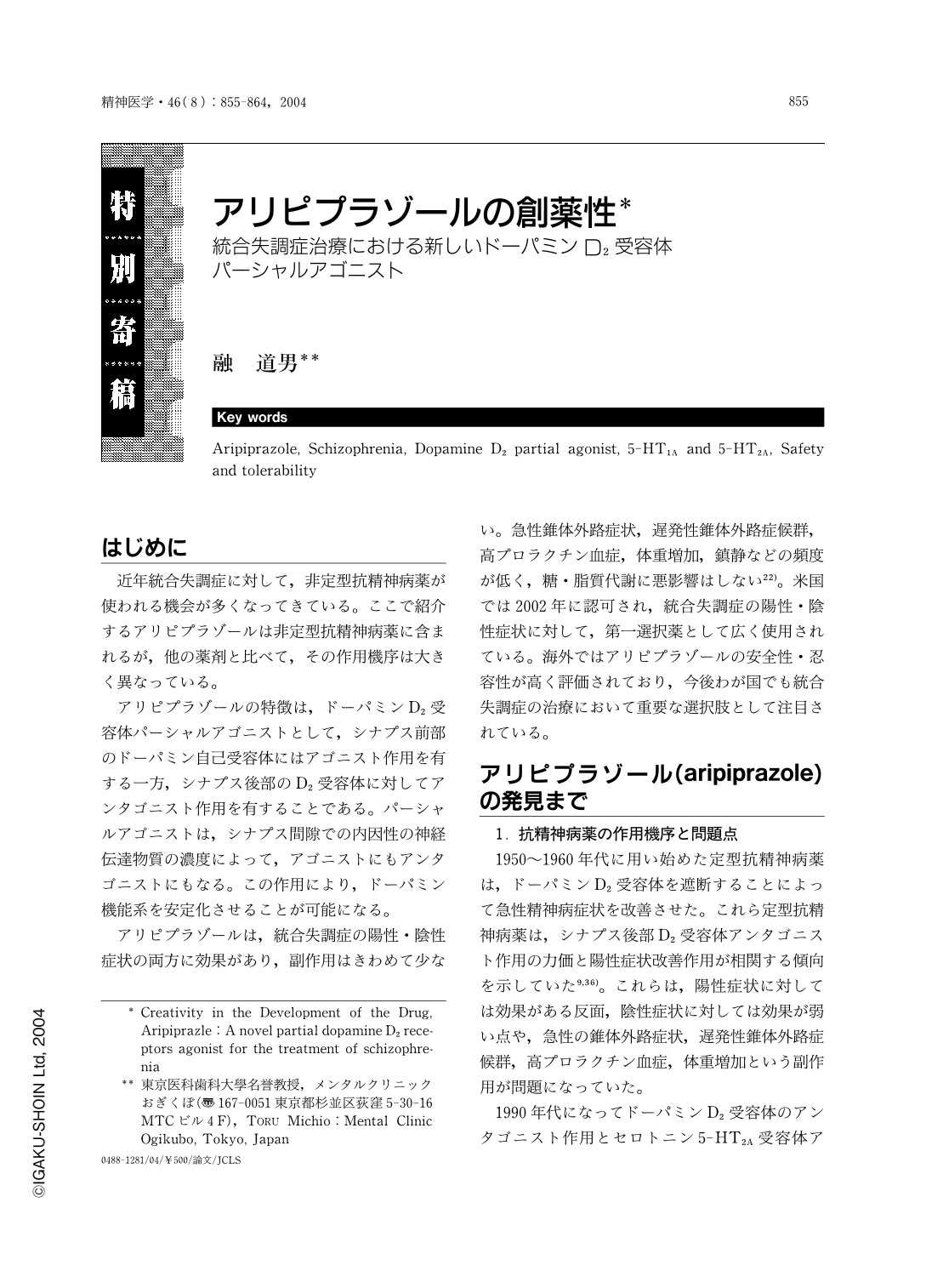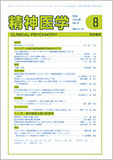Japanese
English
- 有料閲覧
- Abstract 文献概要
- 1ページ目 Look Inside
- サイト内被引用 Cited by
はじめに
近年統合失調症に対して,非定型抗精神病薬が使われる機会が多くなってきている。ここで紹介するアリピプラゾールは非定型抗精神病薬に含まれるが,他の薬剤と比べて,その作用機序は大きく異なっている。
アリピプラゾールの特徴は,ドーパミンD2受容体パーシャルアゴニストとして,シナプス前部のドーパミン自己受容体にはアゴニスト作用を有する一方,シナプス後部のD2受容体に対してアンタゴニスト作用を有することである。パーシャルアゴニストは,シナプス間隙での内因性の神経伝達物質の濃度によって,アゴニストにもアンタゴニストにもなる。この作用により,ドーパミン機能系を安定化させることが可能になる。
アリピプラゾールは,統合失調症の陽性・陰性症状の両方に効果があり,副作用はきわめて少ない。急性錐体外路症状,遅発性錐体外路症候群,高プロラクチン血症,体重増加,鎮静などの頻度が低く,糖・脂質代謝に悪影響はしない22)。米国では2002年に認可され,統合失調症の陽性・陰性症状に対して,第一選択薬として広く使用されている。海外ではアリピプラゾールの安全性・忍容性が高く評価されており,今後わが国でも統合失調症の治療において重要な選択肢として注目されている。
Summary
Herein is presented a review of the history of the development of aripiprazole, a drug primarily for the treatment of schizophrenia. Aripiprazole is the name given to OPC-14597, a quinolinone derivative that was synthesized in 1987 by Y. Oshiro, a chemist. T. Kikuchi, a behavioral pharmacologist, conducted repeated experiments with hundreds of quinolinone derivatives, and finally concluded that aripiprazole was a dopamine autoreceptor agonist possessing a potent antagonistic action at dopamine D2 receptors. Aripiprazole is also a potent partial agonist at serotonin 5-HT1A receptors and an antagonist at 5-HT2A receptors. Thus, aripiprazole is not merely a dopaminergic stabilizer, but rather a dopamine-serotonin system stabilizer that has a favorable safety profile. In clinical studies, aripiprazole has been demonstrated to be effective against both the positive and negative symptoms of schizophrenia, to be associated with low incidences of extrapyramidal symptoms, tardive dyskinesia, weight gain, sedation, hyperprolactinemia, and QTc prolongation, and to have no adverse effects on glucose and lipid levels. Aripiprazole has the potential to be one of the best agents for the treatment of schizophrenia.

Copyright © 2004, Igaku-Shoin Ltd. All rights reserved.


